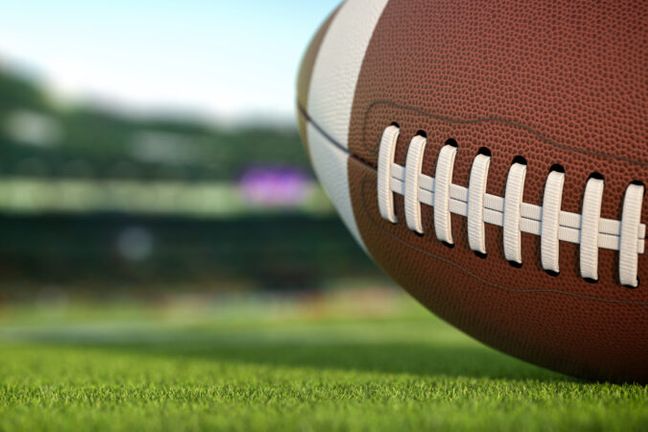What if the rules of football were different in New England and Miami? Conflicting state laws are the heart of a class action suit alleging racial discrimination in NFL hiring practices.
When Does State Law Override Contractual Arbitration?
Brian Flores is the lead plaintiff in a class action claiming the National Football League and participating franchises violated 42 USC § 1981, by denying qualified Black candidates management and coaching positions due to discriminatory hiring practices.
The suit was filed in New York because Mr. Flores asserts the New York Giants subjected him to a sham interview when the decision to hire someone else had already made. Defendants maintain plaintiff’s contracts require them to proceed to arbitration. In the Second Circuit, interpreting an arbitration agreement requires first a determination whether an agreement exists,[i] then whether the agreement is arbitrary, according to the relevant state law.[ii] NFL contracts generally designate a franchise’s home state as the relevant jurisdiction for choice of law purposes.
Mr. Flores specifically sued teams in Denver, Miami, New York, and Houston for discriminatory treatment he received while coaching for New England and Miami. However, Judge Valerie Caproni held only Mr. Flores’ claims against the Broncos, Giants, and Texans could be litigated.
Generally, state laws hold that a contracting party is estopped from avoiding contractually mandated arbitration when bringing claims against a defendant and nonparty who jointly controls their employment. [iii] However, Judge Caproni interpreted Mr. Flores’ claims against the Broncos under Massachusetts law because his contract with the Patriots was in effect when he interviewed with Denver. Judge Caproni interpreted Massachusetts law to hold the ability to unilaterally alter an agreement without notice renders it unenforceable.[iv] The NFL constitution and bylaws, which are incorporated into franchises’ contracts, can be unilaterally changed by the league and its members. Judge Caproni also held that Mr. Flores’ claims against the Giants and Titans could proceed because Commissioner Roger Goodell had failed to sign the applicable contract (Mr. Flores’ contract with the Steelers), making that contract inoperative.
However, defendants are appealing the ruling, arguing Massachusetts courts have held instead held unilateral modification is only one factor consider when determining if a contract is illusory and doesn’t preclude the formation of an enforceable contract.[v]
Takeaway
It remains to be seen whether the appellate court follows defendants’ interpretation of the Massachusetts law. Should plaintiffs prevail, individual NFL teams may begin redrafting their contracts to arbitrate in one central jurisdiction, similar to the manner in which credit card companies use Delaware courts.
Keep Reading
Sources
[i] Meyers v. Uber Techs, Inc., 868, F.3d 66 (2d Cir. 2017)
[ii] Contec Corp., v. Remote Sol, Co. LTD, 398 F.3d 205 (2d Cir. 2005)
[iii] Green v. Mission Health Cmtys., LLC, 20-CV-439 (M.D. Tenn. Nov 13, 2020) (unpublished); Gunson v. BMO Harris Bank, N.A., 43 F. Supp 3d 1396 (S.D. Fla. 2014).
[iv] Fawcett v. Citizens Bank, N.A., 297 F. Supp. 3d 213, 221 (D. Mass 2018).
[v] Buttrick v. Intercity Alarms, LLC, 2010 WL 2609364 (Mass. App. Ct. Jul. 1, 2010) (unpublished).

 Author: William Downes
Author: William Downes
 Editor: Grace Shuman
Editor: Grace Shuman
 Cannabis Workers Allege Quota to Trim 4 Pounds a Day Violates the California Labor Code
Cannabis Workers Allege Quota to Trim 4 Pounds a Day Violates the California Labor Code
 The Ninth Circuit Reminds Us: Every Word Matters
The Ninth Circuit Reminds Us: Every Word Matters
 NO WAY, PRO SE! The Consequences of Abusing the Judicial System as a Pro Se Litigant in Colorado
NO WAY, PRO SE! The Consequences of Abusing the Judicial System as a Pro Se Litigant in Colorado
 Victim of Financial Mismanagement or Unlawful Retaliation? New Jersey City University Program Founder Claims School Retaliated After Reporting Alleged Sexual Harassment
Victim of Financial Mismanagement or Unlawful Retaliation? New Jersey City University Program Founder Claims School Retaliated After Reporting Alleged Sexual Harassment
 “Real Housewives” Gets a Reality Check
“Real Housewives” Gets a Reality Check
 Missing a Chapter: Insufficiency of Expert Deposition Testimony in Medical Malpractice Litigation
Missing a Chapter: Insufficiency of Expert Deposition Testimony in Medical Malpractice Litigation
 Crash Course: Why Summary Judgment Misses the Mark in Illinois Multi-Cause Limousine Crash Collision
Crash Course: Why Summary Judgment Misses the Mark in Illinois Multi-Cause Limousine Crash Collision
 Bitter Truths: Lead, Cadmium, and Defective Pleadings in California Chocolate Class Action
Bitter Truths: Lead, Cadmium, and Defective Pleadings in California Chocolate Class Action
 The Law of Unintended Consequences: Including Insurance Brokers in Litigation Strategy Communication May Waive the Attorney-Client Privilege
The Law of Unintended Consequences: Including Insurance Brokers in Litigation Strategy Communication May Waive the Attorney-Client Privilege